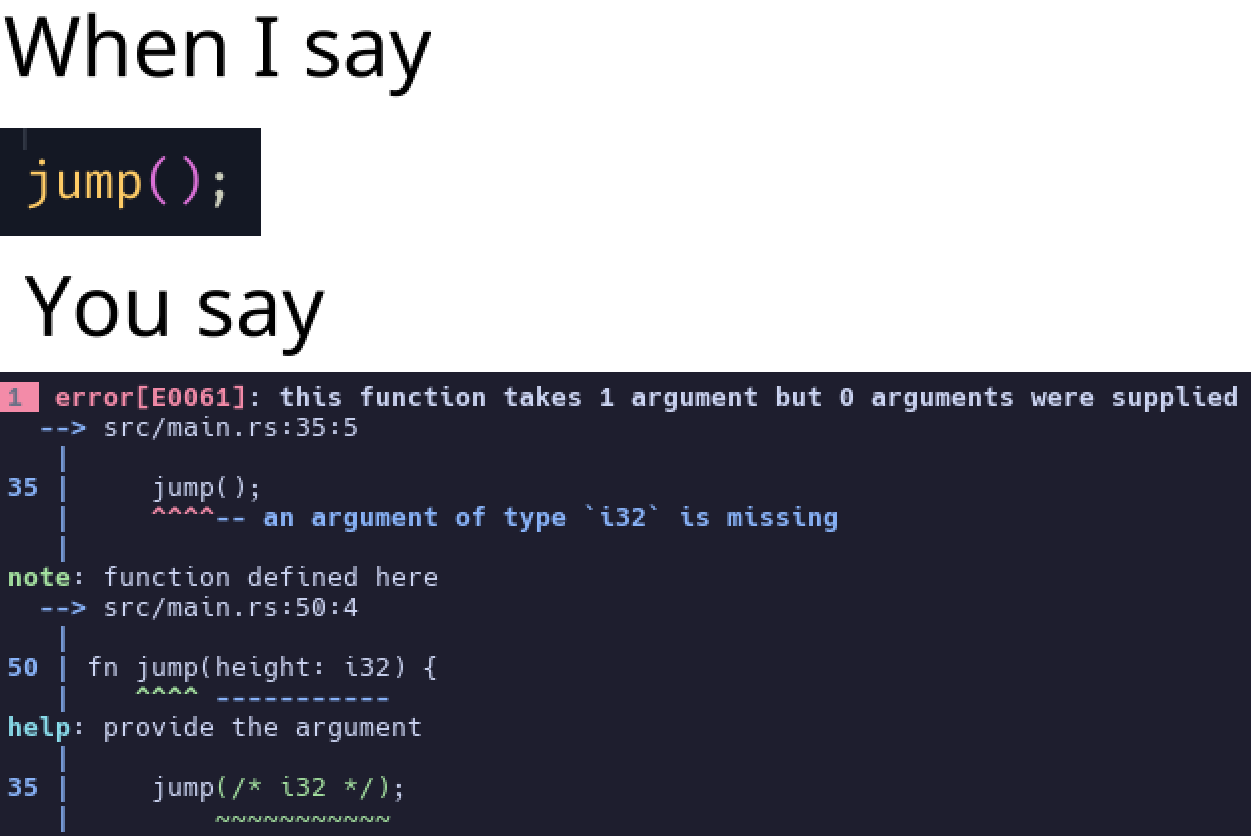Huh, usually they ask 'jump where?'
Programmer Humor
Welcome to Programmer Humor!
This is a place where you can post jokes, memes, humor, etc. related to programming!
For sharing awful code theres also Programming Horror.
Rules
- Keep content in english
- No advertisements
- Posts must be related to programming or programmer topics
i dislike rust, but have to give them credit for helpful error messages. not quite racket level but impressive
What made you dislike it?
the syntax.
Height should be a float
Never use floats.
But then wouldn't it be fly(height: f64) instead of jump(height: i32)?
It's height in centimeters
Chad quantised rust
I don't know Rust but jump typically moves the program counter, where the height represents the number of instructions to move
Afaik rust doesn't have functions like that as they lead to unsafe code that's impossible to check variable lifetimes for. I think OP created the jump function.
They created it. The compiler says the jump function is in src/main.rs
That's what makes us humans different from computers. We don't ask how high, we just do it. Now, if it were a C pointer it would jump anywhere from 0 to 2^32-1. That's why C is more suited for artificial intelligence than it might initially seem. Thanks for coming to my tedx talk
Pointers are ackshully 48 bits on amd64 (which is most PCs and servers)
I was mostly joking about a stray pointer of type uint32_t*
So the size of the pointer itself doesn't matter
Well ackshully newer CPUs support 5-level-paging which uses 56 bits.
Lol, it took me a while to realize it's the compiler essentially saying "how high".
WRONG, PRIVATE!
Now drop and give me int(ceil(19.9))!
I do enjoy the rust compiler error messages. They are nicely formatted
Yeah, but to observe such error messages you'll basically need to wait for 20 mins for it to compile.
No? The steps are compiled once and afterwards your project just gets compiled. Besides, rust-analyzer exists.
I'm trying to learn rust and so far this has definitely made it so much more accessible.
Not to mention their super useful "rustlings" training which has these nice little challenges to get you used to language and syntax
